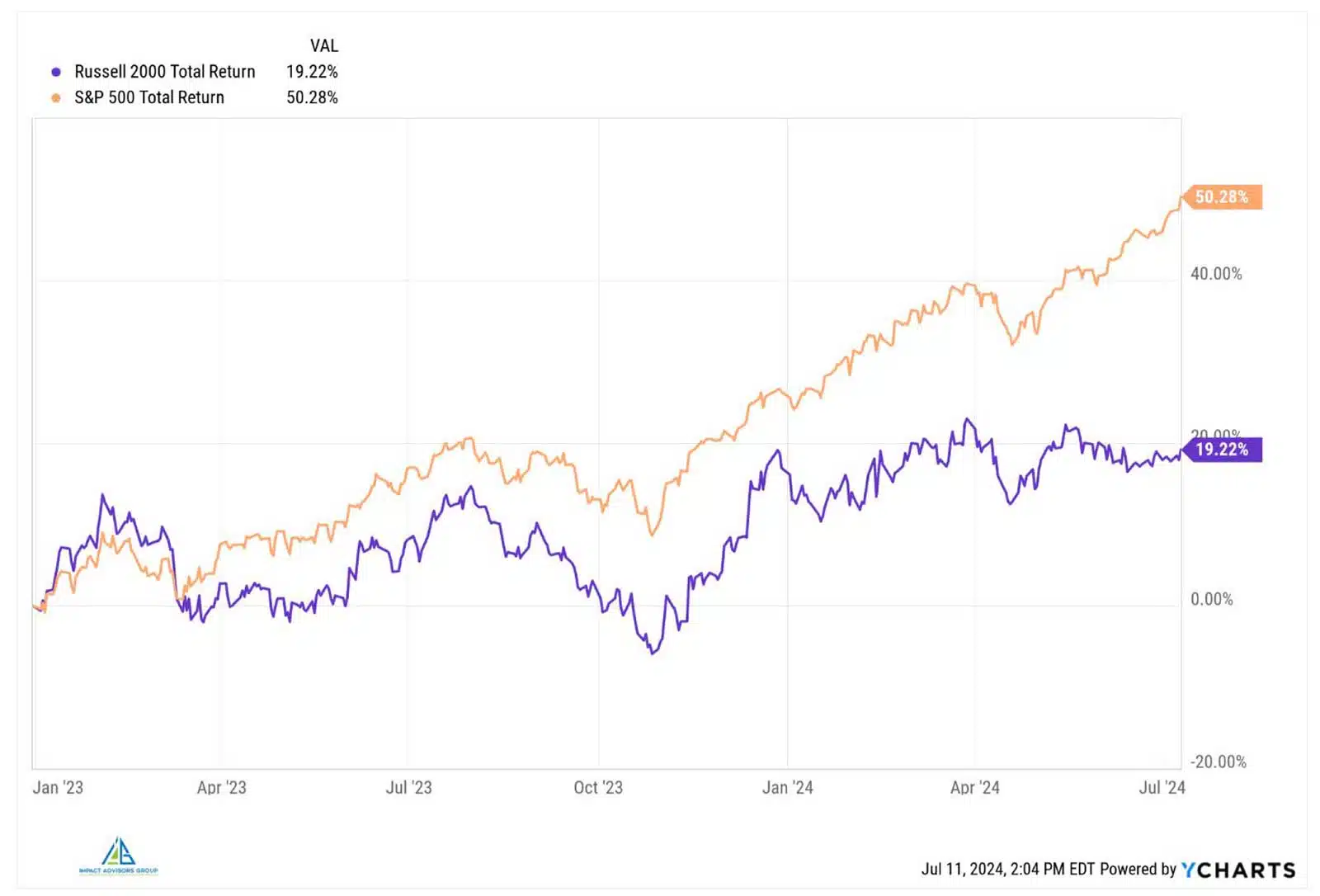
Investment Planning: Retirement Glide Path
Explore smarter retirement planning beyond target date funds with a customized glide path built for your goals and risk tolerance.

When we look at history, generally in a bear market riskier asset classes like Small Cap Stocks decline more than Large Caps. Then when the market recovers and shifts to a bull market phase, it is Small Caps that generally lead the rally. That definitely hasn’t happened recently. The chart below shows that Small Cap Stocks (represented by the Russell 2000 Index) have significantly lagged Large Cap Stocks for the last 18 months.

After a brief market correction in 2022 mega cap stocks have been the only game in town. We have discussed before how “The Magnificent Seven” stocks (Alphabet, Amazon, Apple, Meta, Microsoft, Nvidia, and Tesla) have dominated the returns of the S&P 500. In 2023, the S&P 500 returned 24.2% while the Magnificent Seven rose 75.7%. The bet on AI has pushed Nvidia’s stock price up 172% YTD, and 823% in the last 18 months. This concentrated market performance has caused a similar divergence between Large Cap Growth Stocks and Large Cap Value Stocks.

Economist Herb Stein said “If something cannot go on forever, it will stop.” Watching this performance trend is difficult for those of us who subscribe to evidence-based investing. (Evidence-based means evidence accumulated over 30 plus years, not just one or two.) To those of us who lived through the Tech bubble some 20 years ago, some of this looks extremely familiar. We know that the current trend of Growth/MegaCap/Tech outperformance won’t last forever. We just don’t know how long it will take for the market trends to change.

Explore smarter retirement planning beyond target date funds with a customized glide path built for your goals and risk tolerance.

Thoughtful planning creates confidence. Prepare your finances, career, and family goals for a stronger, more focused 2026.

Before you invest, protect your plan. Discover how Matt Williams uses protection-first planning to build stronger, more resilient financial strategies.

Discover how financial organization and comprehensive planning can protect your family, reduce stress, and create lasting peace of mind.